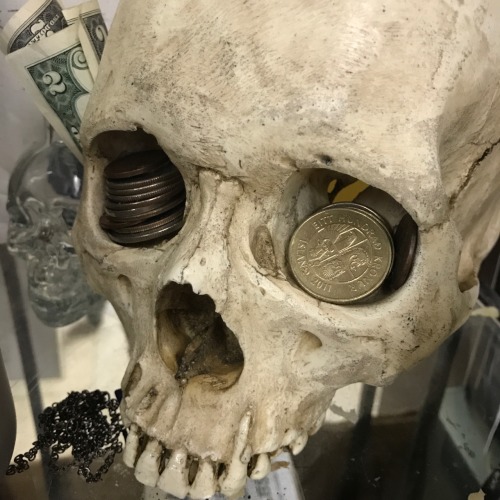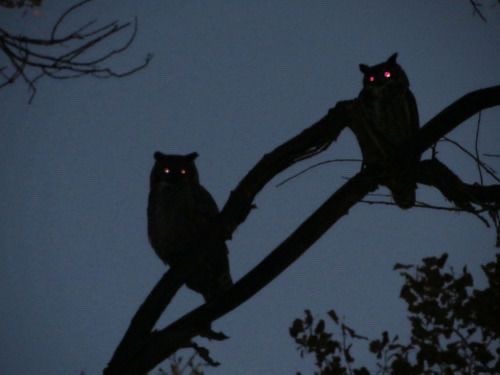Lilyandflowers - 𝕷𝖎𝖑𝖞 𝖆𝖓𝖉 𝖋𝖑𝖔𝖜𝖊𝖗𝖘

More Posts from Lilyandflowers and Others


Two recent studies of Persephone, the larger portrait is 12 x 16 and the small, full bodied one is 8 x 10, both on canvas boards.

the money skull, reblog for money and or skulls

Scotney Castle

Queen Persephone









“Now the world is mine alone”
-The Frost, Mitski
Khaîre, King Hades! I love you so much!
💀👑💎💀👑💎💀👑💎💀👑💎💀👑💎
(All images found on Pinterest)

Persephone 👸🍂💀🦇

This is Money Snake. She only appears every 312 years.
If you reblog her picture within the next twenty-five seconds you will have good luck and fortune for the rest of your life.

Persephone and Hades tending the soil after a harvest in order to ensure the bounty of the following year's harvest, maintaining the cycle of death and rebirth.

🌾 Demeter and Persephone 🌾
I guess springtime got me thinking about the two of them, which is kind of ironic since this painting is set just before Persephone's departure into the underworld.
I also thought the mother-daughter relationship and her grief at her daughter's marriage/ metaphorical "death" (as described in the Homeric Hymn to Demeter) would be interesting to explore artistically.
(Close-ups)



THANATOS: AN INFODUMP
Thanatos (Θανατος) known to the romans as Mors is the god or daimon (personified spirit) of non-violent death. He is a chthonic deity residing in the underworld.

This post covers his family, symbols, notable myths, epithets, orphic hymn, and my favourite passages about him.

PARENTAGE AND SIBLINGS
His parentage and family can be understood through Hesiod’s Theogony (A Greek epic written in the 8th or 7th B.C)
And Nyx (Night) bare hateful Moros (Doom) and black Ker (Violent Death) and Thanatos (Death), and she bare Hypnos (Sleep) and the tribe of Oneiroi (Dreams). And again the goddess murky Nyx, though she lay with none, bare Momos (Blame) and painful Oizys (Misery), and the Hesperides . . . Also she bare the Moirai (Moirae, Fates) and the ruthless avenging Keres (Death-Fates) . . . Also deadly Nyx bare Nemesis (Envy) to afflict mortal men, and after her, Apate (Deceit) and Philotes (Friendship) and hateful Geras (Old Age) and hard-hearted Eris (Strife).
— Parents: Nyx with no father (Roman versions of his birth name Erebus the father)
— Siblings:
Apate (deceit)
Eris (strife)
Geras (old age)
Hesperides (nymphs of the evening)
Hypnos (sleep) Ker (violent death)
Keres (death-fates)
Moirai (fates)
Momos (blame)
Moros (doom)
Nemesis (retribution)
Oizys (misery)
Oneiroi (dreams)
Philotes (friendship)

SYMBOLS AND APPEARANCE
SYMBOLS
— inverted torch → represents a life being extinguished
— butterfly → symbolises the soul
— sword → indicates his authority to sever the thread of life
— poppies → as a symbol of eternal sleep
— wreath → suggesting eternity, or the cyclical nature of life and death
APPEARANCE
Greek vase paintings depicted him as a winged, older man with a beard and rarely as a young, beardless youth.
Roman sculptures portrayed him as a youth holding an inverted torch and a wreath or butterfly

NOTABLE MYTHS
— THANATOS AND THE BODY OF SARPEDON
As seen in the Iliad, Thanatos and Hypnos are tasked to carry the body of Sarpedon away from the battlefield to Lycia so his brothers and countrymen can give him a respectful burial.
Homer, Iliad 16. 453 ff (trans. Lattimore) (Greek epic C8th B.C.) : "[Hera speaks to Zeus about the approaching death of his son Sarpedon :] ‘But after the soul and the years of his life have left him [Sarpedon], then send Thanatos (Death) to carry him away, and Hypnos (Sleep), who is painless, until they come with him to the countryside of broad Lykia (Lycia) where his brothers and countrymen shall give him due burial with tomb and gravestone.’"
Homer, Iliad 16. 681 ff : "Then [Apollon] gave him [Sarpedon] into the charge of swift messengers to carry him, of Hypnos (Sleep) and Thanatos (Death), who are twin brothers, and these two presently laid him down within the rich countryside of broad Lykia (Lycia)."
— THE CAPTURE OF THANATOS BY SISYPHUS
Sisyphus was the (possibly) founder and king of Corinth and was known as ‘the craftiest on men’ in texts by Homer. In the myth, Thanatos was sent to carry Sisyphus into the underworld. Upon Thanatos’ arrival, Sisyphus who was hiding chained him and in doing do, suspended death across the entire world. Thanatos was later freed by Ares who had noticed an absence of death from the battlefield
Alcaeus, Fragment 38a (trans. Campbell, Vol. Greek Lyric I) (Greek lyric C6th B.C.) : "King Sisyphos (Sisyphus), son of Aiolos (Aeolus), wisest of men, supposed that he was master of Thanatos (Death); but despite his cunning he crossed eddying Akheron (Acheron) twice at at fate's command."
Aeschylus, Sisyphus the Runaway (lost play) (Greek tragedy C5th B.C.) : Weir Smyth (L.C.L.) quotes from Pherecydes, a C5th B.C. mythographer, in his discussion of the plot of this lost play: "The drama was satyric; its theme, the escape from Haides of the crafty Korinthian king. According to the fabulous story told by Pherekydes (Frag. 78 in Müller,Fragmenta Historicum Graecorum) Sisyphos made known to Asopos that it was Zeus who had carried off his daughter Aigina; in punishment for which offence the god sent Thanatos (Death) against the babbler; but Sisyphos bound Thanatos (Death) fast, so that men ceased to die, until Ares came to the rescue, released Thanatos, and gave Sisyphos into his power."
— THANATOS WRESTLED BY HERACLES
In the Euripides, a Greek tragedy written in the 5th C B.C. Thanatos is wrestled by Heracles to save the life of Alkestis. Heracles does this to repay Admetos, Alklestis’
Euripides, Alcestis 839 ff : "Herakles : I must save this woman who has died so lately, bring Alkestis back to live in this house and pay Admetos all the kindness that I owe. I must go there [to the funeral at the graveside] and watch for Thanatos (Death) of the black robes (melampeplos), master of dead men (anax nekrôn), and I think I shall find him drinking the blood of slaughtered beasts beside the grave. Then, if I can break suddenly from my hiding place, catch him, and hold him in the circle of these arms, there is no way he will be able to break my hold on his bruised ribs, until he gives the woman up to me. But if I miss my quarry, if he does not come to the clotted offering, I must go down, I must ask Kore (Core, the Maiden) [Persephone] and the Master (Anax) [Haides] in the sunless homes of those below (domos anêlios)."

EPITHETS
Greek
- Paean -> the healing (delivers men from the pains and sorrows of life)
- Melampeplos -> of the black robes
- Anax Nekron -> master of dead men
English (these are ones I've derived from text so partial upg)
- insatiable
- dreadful/dreaded one
- awful god
- with a heart of iron
- without mercy
Latin
- Acherontis - inflicter of Acheron (woe)

ORPHIC HYMN
The Fumigation from Manna. Hear me, O Death [Thanatos], whose empire unconfined, extends to mortal tribes of every kind. On thee, the portion of our time depends, whose absence lengthens life, whose presence ends. Thy sleep perpetual bursts the vivid folds, by which the soul, attracting body holds: Common to all of every sex and age, for nought escapes thy all-destructive rage; Not youth itself thy clemency can gain, vigorous and strong, by thee untimely slain. In thee, the end of nature's works is known, in thee, all judgment is absolved alone: No suppliant arts thy dreadful rage control, no vows revoke the purpose of thy soul; O blessed power regard my ardent prayer, and human life to age abundant spare.

MY FAVOURITE MISC. COLLECTION OF TEXTS
Hesiod, Theogony 758 ff (trans. Evelyn-White) (Greek epic C8th or C7th B.C.) : . . . These are Hypnos (Sleep) and Thanatos (Death), dread divinities. Never upon them does Helios, the shining sun, cast the light of his eye-beams, neither when he goes up the sky nor comes down from it. One of these [Hypnos], across the earth and the wide sea-ridges, goes his way quietly back and forth, and is kind to mortals, but the heart of the other one [Thanatos] is iron, and brazen feelings without pity are inside his breast."
Aeschylus, Fragment 82 Niobe (from Stobaeus, Anthology 4. 51. 1) (trans. Weir Smyth) (Greek tragedy C5th B.C.) : "For, alone of gods, Thanatos (Death) loves not gifts; no, not by sacrifice, nor by libation, canst thou aught avail with him; he hath no altar nor hath he hymn of praise; from him, alone of gods, Peitho (Persuasion) stands aloof."
Aeschylus, Fragment 141 Philoctetes (from Stobaeus, Anthology 4. 52. 32) : "[The wounded Philoktetes (Philoctetes) laments :] ‘O Death (thanatos), the healer (paian), reject me not, but come! For thou alone art the mediciner of ills incurable, and no pain layeth hold on the dead.’"

